How to Utilize Remarketing Ads for Personal Injury Attorney Campaigns
At Legal Leads Group we help lots of different types of law firms land new case leads. But, if you asked us what our bread and butter is, we’d tell you it’s managing personal injury attorney ad campaigns. Face it, one of our owners is even a retired PI lawyer. We eat, sleep, and breathe accident injury marketing. And, if you’re an attorney practicing any type of B2C law such as employment law, immigration, family law, criminal defense, estate planning, or even workers’ comp then you KNOW that personal injury cases are the toughest to target. And the most expensive. So if we can convert for personal injury attorneys, we can do it for all types of law practices.
With that, today we wanted to tackle one of our most often-asked questions. Potential clients and even current clients often bring up retargeting. That’s what today’s article is about. We’re going to discuss how to utilize retargeting for personal injury attorney campaigns. As always, our blog articles are designed to rank high for search terms. Even though we provide a plethora of helpful information within our articles, we are also self-advertising. If you’re an accident attorney, and you want to learn more about retargeting (or more importantly how to get better case leads and more of them) call us at (805) 273-8791 to schedule a free campaign review.
Without further delay, here is today’s blog article. Let’s dive head first into Google Ads remarketing campaigns for personal injury law firms.
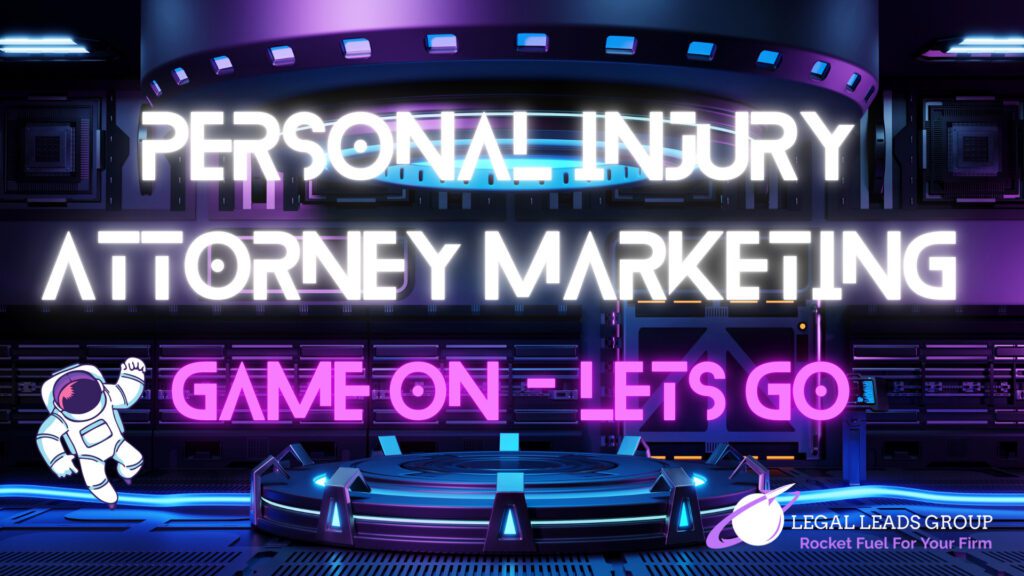
Google Ads Remarketing Campaigns for Personal Injury Law Firms
Another day, another article from Search Engine Land talking about ways you can help boost Google Ad Profits with remarketing. For lawyers, I’m sure this doesn’t sound like anything more than just SEO buzzwords, and you are right. But remarketing can be worth learning for lawyers or law firms to dedicate some time to staying competitive. When used correctly, remarketing offers personal injury lawyers a unique opportunity to reconnect with potential clients and convert missed opportunities into meaningful leads. Hidden within the details of Google Ads lies a powerful tool that can help you stand out and drive real results.
What is Remarketing?
Google Ads remarketing helps businesses reconnect with people who have visited their website but didn’t take action. It works by placing a tracking pixel on your site, which allows Google to show targeted ads to past visitors as they browse other websites or use apps. This strategy keeps your law firm’s name in front of potential clients, reminding them of your services and encouraging them to return.
These ads can appear across Google’s Display Network or in search results, providing multiple opportunities to re-engage potential clients. For example, someone who viewed your page on car accident claims could see an ad reminding them of your free consultation. This type of targeted marketing can be a game-changer, especially in personal injury law, where timing often determines whether someone reaches out for legal help or keeps searching.
How can Remarketing help You?
Let’s say someone was hurt in a slip-and-fall case and is shopping around for potential law firms. They went to your site but didn’t sign up for a free consultation, then went and checked out your competitors. They take some time to think about it but can’t recall who was at the top of their list. Remarketing helps put your law firm back into their top of mind by showing your ads to them again, since they have shown initial interest in your firm. If they had a positive recollection about your law firm and website, they may even pull the trigger and call to schedule a consultation with you!
Remarketing ensures they won’t forget you. By strategically placing ads on the sites and apps they visit, you stay in front of mind while they browse the web. Whether they’re scrolling through news articles or watching videos on YouTube, your targeted ads will remind them of your law firm’s availability and services. These ads are highly personalized because they’re aimed at users who already showed interest in your firm. With this approach, you create repeated exposure, which helps build familiarity and trust, which are key factors in their decision-making process.
If the potential client had a positive impression of your website, remarketing can push them to act on that memory. Seeing an ad for your law firm, especially one highlighting a free consultation or legal success stories, can be the push they need to return to your website to either call or fill out your form for a consultation. Your remarketing strategy helps get them to reach out for your services when they are ready to follow through with their accident claim.
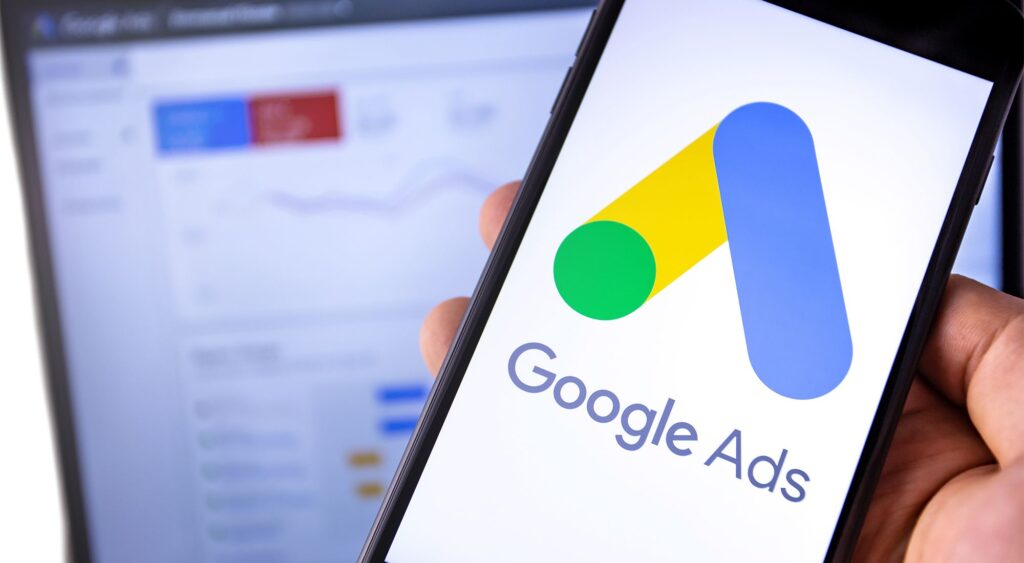
Types of Remarketing
Remarketing has several different ways to be utilized, each offering unique ways to re-engage potential clients who have interacted with your website or online content. For law firms, choosing the right type of remarketing can significantly impact your ability to convert undecided leads into clients.
-
Standard Remarketing
This method involves showing targeted ads to people who have previously visited your website. As they browse other websites, apps, or platforms within Google’s Display Network, they’ll encounter your law firm’s ads, keeping your services top of mind. For example, a potential client who viewed your car accident claims page may see follow-up ads offering a free consultation or highlighting successful case outcomes.
-
Search Remarketing (RLSA)
Remarketing Lists for Search Ads (RLSA) allow you to target past website visitors when they search related terms on Google. If someone visited your personal injury page and later searches for “lawyers for car accidents near me,” your ad could appear prominently in the search results, increasing the chance they’ll click on your firm instead of a competitor.
-
Dynamic Remarketing
Dynamic remarketing takes personalization to the next level by showing ads tailored to the specific pages or services a user viewed. For example, if someone explored your page on medical malpractice claims, they’ll see ads that reference those exact legal services, reminding them not only about your practice, but also that you offer those services they were previously searching for.
-
Video Remarketing
With video remarketing, your ads can appear on YouTube or other video platforms to re-engage potential clients. If someone watched a video about how to file a personal injury claim on your website or YouTube channel, they may later see targeted ads reminding them of your practice’s legal services.
-
Email Remarketing (Customer Match)
This method targets users by uploading your existing client or contact email lists to Google Ads. It’s ideal for reaching out to previous clients or leads who have expressed interest but haven’t yet signed up. This approach can work well for following up on consultations or nurturing long-term leads.
-
Social Media Remarketing
Although technically not a part of Google Ads, social media remarketing works seamlessly alongside it. Ads can appear on platforms like Facebook and Instagram, targeting users who interact with your law firm’s website. This multi-platform approach covers every visibility angle and ensures your firm stays in front and center during their decision-making process.
Does every type of remarketing need to be used to be most effective? No. You should only use what you believe will be beneficial to you. But you should always want to try out other options as well to ensure that you aren’t leaving potential clients on the table.
Audience Segmentation for Law Firms
Without good tracking, you will never know if a potential client visit to your website is the first time they have been to your site or the third. Audience segmentation allows you to more thoroughly target ads. If someone browses your car accident injury page, and another looks at your premises liability injury page, you can then use remarketing to send them ads specifically targeting those pages they looked at, versus sending them generalized ads.
You can also create time-based audience segments to test how engagement changes over time. For example, a user who visited your website 5 days ago may respond differently to an ad than someone who hasn’t interacted with your site in 60 days. These time-based distinctions help you decide when to ramp up or scale back your marketing efforts. In the competitive field of personal injury law, this precision targeting can ensure your budget is being spent on prospects most likely to convert.
Segmenting audiences based on traffic sources can boost campaign efficiency. You might create different remarketing strategies for users who found your site through organic search, compared to those who came via social media or referral links. Each group may have distinct intent levels, and understanding these differences can help you craft more compelling messaging. Segmentation doesn’t just refine your audience, it maximizes the chances of reaching clients who are already leaning toward hiring legal representation.
Retargeting Clients Based on Different Practice Areas
Not every potential client visiting your law firm’s website is seeking help for the same reason. Some may be victims of car accidents, while others could be pursuing claims for medical malpractice or slip-and-fall injuries. Customizing remarketing ads to reflect these specific legal needs can significantly increase engagement. For example, if someone visited your car accident injury page, they should see ads tailored to that subject, such as “Injured in a Car Accident? Get the Compensation You Deserve.” This personalization creates a more relevant experience and strengthens the likelihood that the user will respond positively.
Segmented ad targeting helps you refine your messaging, ensuring that users only see content related to their specific interests. Instead of running general ads about your law firm’s services, you can create targeted campaigns for different practice areas, highlighting your experience and key benefits for each. For example, visitors to your premises liability page could see ads discussing “How We’ve Helped Slip-and-Fall Victims Win Millions.” This segmented approach makes your messaging more impactful by addressing the user’s individual situation, helping to build trust and drive higher conversion rates.
Success stories from segmented remarketing campaigns further illustrate their effectiveness. For instance, a law firm might see an increase in consultations after launching a campaign targeting users who previously viewed their medical malpractice page. By showing ads that included client testimonials or case results related to medical negligence, the firm could effectively re-engage users who were hesitant to reach out initially. Similarly, a campaign targeting car accident claim visitors could highlight “No Upfront Fees” and recent case wins, successfully converting users who initially browsed but didn’t contact the firm. Segmenting ads by practice area is not just good marketing, it’s a strategic advantage in turning leads into clients.
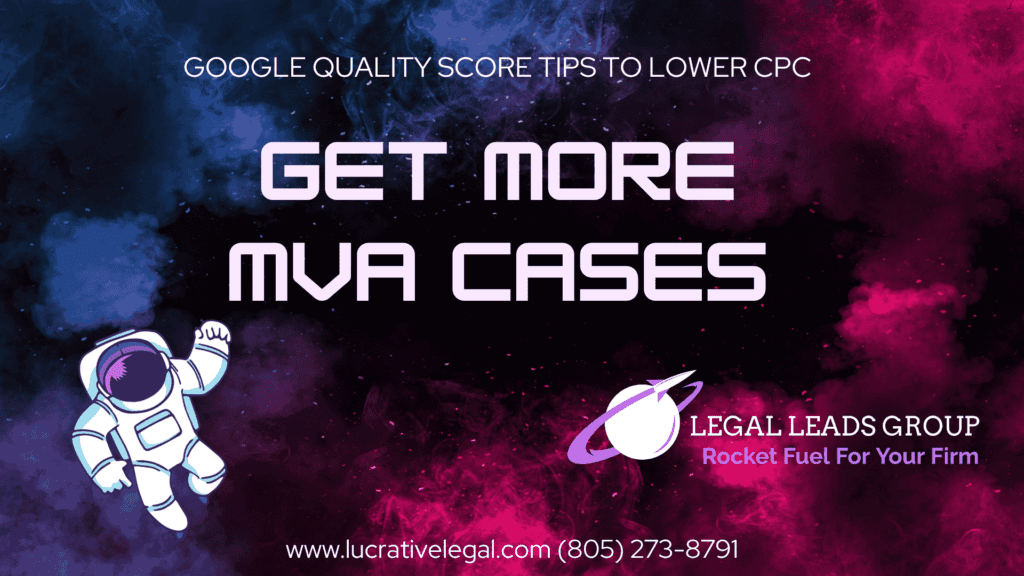
Why Remarketing Works When Advertising for Personal Injury Lawyers
People are sometimes unpredictable when stress and accidents happen. People after an accident may click on the first lawyer ad they see, others may take their time and research several lawyers around them to see which could be the best fit for them. While remarketing may not help much with the first type of people,
Legal Clients Take Time to Make Decisions
Hiring a lawyer isn’t something people rush into, especially when dealing with personal injuries. Potential clients spend time comparing law firms, reading case results, and evaluating reviews before making a decision. Many visitors leave your site without reaching out because they’re still weighing their options. Without remarketing, you risk being forgotten as they move on to other law firm websites. But with remarketing, your law firm stays on their radar, reminding them that you’re available to help.
Staying Top of Mind During the Decision-Making Process
Remarketing ads ensure your law firm remains part of the conversation as potential clients browse online. These ads follow them as they scroll through news sites or social media, keeping your services fresh in their minds. For personal injury cases, where clients often hesitate due to confusion or uncertainty, this repeated exposure builds trust. By continuously reminding them of your availability and services, you position your law firm as the clear choice when they’re ready to take that first legal step.
The Power of Recency Bias in Legal Marketing
People naturally remember information they encountered repeatedly and recently. This psychological tendency, known as recency bias, is the backbone of successful remarketing. For instance, if a visitor checks out your car accident claims page and then sees your ad later while reading the news or browsing online, they’re more likely to recall your firm. Over time, this familiarity strengthens, making it more likely they’ll return to your site when they’re ready to contact a lawyer.
Converting Missed Opportunities into New Clients
Every potential client who leaves your website without calling or filling out a form is a lead waiting to be won. Remarketing bridges the gap between their initial interest and their final decision. A well-placed ad reminding them of your free consultation or highlighting your past successes can prompt them to act. If their experience on your site was positive, remarketing can turn that first impression into a phone call or consultation request.
Personalized Ads Build Trust and Drive Action
Remarketing ads work best when they’re tailored to the user’s behavior. If someone visits your page on slip-and-fall injuries, they should see ads related to that topic. Targeted ads build trust by showing potential clients that you understand their specific concerns. For example, an ad mentioning your successful slip-and-fall cases or offering a free consultation reassures them that you’re ready to help. This personalized approach can reduce hesitation and lead them to reach out.
The Role of Remarketing in Emotional and High-Stakes Cases
Personal injury cases often involve high emotions and delayed decisions. Potential clients may not immediately recognize the need for legal representation or feel ready to act. Remarketing helps ensure that when they are ready, your law firm is the one they remember. By showing ads consistently over time, you’re there when they need support the most, helping them take the next step in pursuing their claim.
How is Remarketing Ad Timing Crucial for Personal Injury Cases?
Timing can make or break a remarketing campaign, especially for law firms handling personal injury cases. When someone is injured in an accident, they may not contact a lawyer immediately because they are dealing with injuries, emotional turmoil, or even that they haven’t considered they need a lawyer for the accident yet. The key is to have your ads ready to be shown when they start looking, and tracking who has been to your site looking for your services.
Remarketing bridges this gap by ensuring your law firm’s ads appear at key moments in their decision-making process. For example, showing ads within the first few days after their visit can capture those who are ready to act quickly, while slower, long-term campaigns can help you stay visible to those who need more time.
Early-stage remarketing campaigns can use time-sensitive messaging, such as reminding users about deadlines for filing claims or emphasizing the importance of timely legal advice. These ads tap into urgency and motivate potential clients to take action before they miss critical legal windows. On the other hand, long-term campaigns work by gradually reinforcing trust. If a user doesn’t respond to initial ads, follow-up ads with testimonials, case results, or new service highlights can nurture them until they’re ready to make a decision.
To optimize timing, law firms can test different remarketing windows, such as 7-day, 14-day, or 30-day segments, to see which periods generate the most engagement. By analyzing the data, you can strike a balance between frequent reminders and ad fatigue. Time your ads carefully to stay relevant without overwhelming users, keeping your law firm in their consideration while they move through the selection process.
Balancing Frequency and Ad Fatigue
Finding the right balance in how often you display remarketing ads is key to keeping potential clients engaged without pushing them away. While consistent exposure builds familiarity and trust, too many ads can lead to ad fatigue, where users begin to ignore or even resent the ads they see. As a general rule, aim to limit ad frequency to a manageable level—typically no more than 3-5 times per week for the same audience. Testing different frequencies is important, as overexposure could lead to declining click-through rates or wasted ad spend.
One of the earliest signs of ad fatigue is when your click-through rate (CTR) drops while impressions remain high. Potential clients may see your ads, but they’re no longer engaging with them. Other indicators include higher bounce rates or a decrease in conversions, suggesting the ads are no longer effective. When this happens, it’s time to refresh your ad creatives. This doesn’t always mean a complete overhaul. Sometimes, changing the headline, image, or call-to-action can re-ignite interest and drive engagement.
Rotating ad variations regularly is another way to prevent ad fatigue while keeping your message fresh. Create multiple ad sets that highlight different aspects of your law firm, such as free consultations, case results, or client testimonials. You can also vary the tone, using urgency in some ads (e.g., “Don’t Miss Filing Deadlines”) while others focus on reassurance (e.g., “We’re Here to Help You Move Forward”). By cycling these variations, you maintain user engagement while avoiding the monotony of showing the same ad repeatedly. This approach helps ensure your remarketing efforts remain effective over time.
How Much Time Does It Take to Create Remarketing Campaigns?
Setting up a remarketing campaign isn’t an overnight task—it requires careful planning and attention to detail. On average, creating a basic campaign can take several hours to a few days, depending on its complexity. The process involves multiple steps, such as installing tracking pixels on your website, defining audience segments, and crafting ad creatives tailored to different types of users. For law firms, this can become more time-intensive when you need to create custom segments for different practice areas, like car accidents, slip-and-fall cases, or medical malpractice claims.
The time commitment also varies based on the level of customization you want. A simple “all website visitors” audience could be set up within a day, but creating segmented campaigns—targeting users who visit specific legal service pages or abandon contact forms—requires more effort. You’ll need to develop personalized ads, configure time-sensitive retargeting windows, and test performance to optimize for the best results. For example, designing ads for different case types, writing compelling copy, and selecting visuals that resonate with various legal concerns can add days to the preparation process.
Once the campaign is live, you’ll also need to allocate time for ongoing management. Regularly reviewing performance metrics, conducting A/B tests, and refreshing ad variations can take several hours per week. The long-term effectiveness of a remarketing campaign depends on this continuous fine-tuning. Although the setup can be intensive, the payoff often justifies the effort, as well-targeted remarketing campaigns can significantly increase your chances of converting potential clients into paying ones.
Personal Injury Lawyer Marketing and How to Get Better Case Leads
In today’s digital-first landscape, personal injury lawyers must go beyond traditional marketing methods to attract high-quality leads. While referrals and networking still play a key role, online marketing strategies—especially those involving targeted advertising—can help attorneys connect with clients who are actively seeking legal representation. The key isn’t just getting leads but securing better leads: clients whose cases align with your area of expertise and who are ready to take action.
This article discusses how Local Service Ads, Responsive Search Ads, Call Only Ads, and Retargeting strategies can revolutionize your marketing efforts and ensure you maximize returns on your marketing investment.
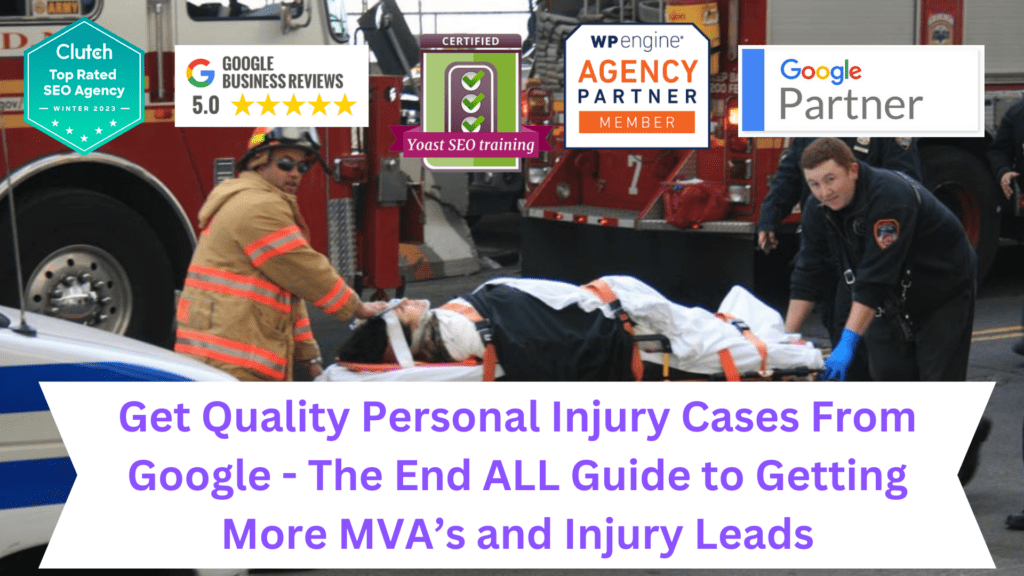
How to Get Accident Injury Cases from Google
The Types of Ad Campaigns That Convert the Best for Personal Injury Attorney Marketing
When it comes to digital advertising, success hinges not only on your budget but also on the types of campaigns you choose to run. For personal injury attorneys, there are clear winners: Google LSAs, Responsive Search Ads, and Call Only Ads. These ad formats are tailored for service providers, making them ideal for attorneys looking to grow their practice. Let’s take a closer look at what each campaign type offers.
Google LSAs (Local Service Ads)
With Google LSAs, your firm has the chance to be featured at the very top of Google Search results, even above traditional pay-per-click (PPC) ads. LSAs include a “Google Screened” or “Google Guaranteed” badge that signals credibility and trustworthiness to potential clients. This prime placement and seal of approval are invaluable for attorneys building trust in their local community.
How do LSAs work? Unlike PPC campaigns, LSAs are designed to charge you only for verified leads, such as phone calls or messages from potential clients. This lead-focused payment model ensures your budget isn’t wasted on unqualified clicks. LSAs also allow users to read reviews, learn about your firm’s services, and contact you directly—all from within the ad.
For example, a personal injury attorney specializing in vehicle accidents might see their ad prominently displayed when someone searches for “car accident lawyer near me.” This hyper-relevance leads to a higher conversion rate and ensures you’re only getting inquiries from individuals actively seeking legal help.
According to Whitehardt, firms using LSAs typically see better ROI compared to other advertising formats partly because the ads are optimized based on location and specialization.
Responsive Search Ads
Responsive Search Ads (RSAs) utilize automation and machine learning to serve the most effective ad copy to users. Instead of creating a single static ad, you provide Google with multiple versions of headlines and descriptions. Google’s AI then tests combinations to find the one that performs best for searches.
For personal injury attorneys, RSAs can cater to different client intents. For instance, someone searching “medical malpractice attorney” will see messaging that highlights your experience and results in such cases, while another user searching “slip and fall injury lawyer” will see a tailored message about your work in premises liability.
This ad type is also great for split testing. Instead of manually running A/B testing on separate ads, RSAs handle this for you, delivering optimized ads quickly. Data from Vital Design shows that brands utilizing RSAs often experience a double-digit increase in click-through rates (CTR).
To make RSAs most effective:
- Include keywords related to your location and practice areas, such as “accident lawyer in [city].”
- Use attention-grabbing language like “No Fees Unless We Win” to spark interest.
RSAs are a must-use ad type for any attorney serious about improving both the reach and results of their campaigns.
Call Only Ads
Call Only Ads simplify the customer journey by encouraging users to contact your firm directly by phone. When a potential client clicks a Call Only Ad, they’re automatically prompted to call your business, making it easier for them to take immediate action.
This ad format is particularly useful for personal injury attorneys because it caters to individuals in urgent need of legal support. For example, a car accident victim searching for “injury lawyer now” is more likely to pick up the phone than fill out an online form. Call Only Ads capitalize on this immediacy, connecting you with leads that are ready to engage.
To ensure success with Call Only Ads, focus on:
- Clearly displaying the benefits of immediate contact, such as “Free Consultation, Call Now.”
- Using action-oriented language like “Speak to an Attorney Today.”
- Enabling call tracking to measure the success of your ads (Majux outlines the importance of doing so).
This direct form of marketing eliminates steps in the client acquisition process and helps you build a relationship with clients from the very first interaction.
How Retargeting Can Help Ads and Conversions
Retargeting is often considered a powerhouse strategy in digital marketing—and for good reason. Studies have shown that only 2% of website visitors convert on their first visit, meaning 98% leave without taking action (Epsilon). Retargeting keeps your law firm at the forefront of their minds, gently nudging them to return when they’re ready to hire an attorney.
For personal injury lawyers, retargeting can prove especially effective. Many people who suffer accidents or injuries often explore multiple firms before making a decision. Retargeting ensures that your ads follow them across the web, reminding them of why your services are the right choice.
Here’s how retargeting campaigns can boost your conversions:
- Dynamic Ads: You can tailor ads based on the user’s behavior. For instance, if someone views your page about motorcycle accidents, retargeting ads can highlight your expertise in motorcycle injury cases.
- Social Media Retargeting: Platforms like Facebook and Instagram allow you to retarget website visitors, ensuring you reach them during their leisure browsing as well as when they’re actively on search engines.
- Client Testimonials in Retargeted Ads: Emphasizing your credibility through client reviews or awards is an excellent way to nudge hesitant leads toward taking action.
Retargeting isn’t about being pushy; it’s about keeping your firm visible and valuable to potential clients. By systematically reminding them of your services, you establish trust and build a stronger chance of securing conversions.
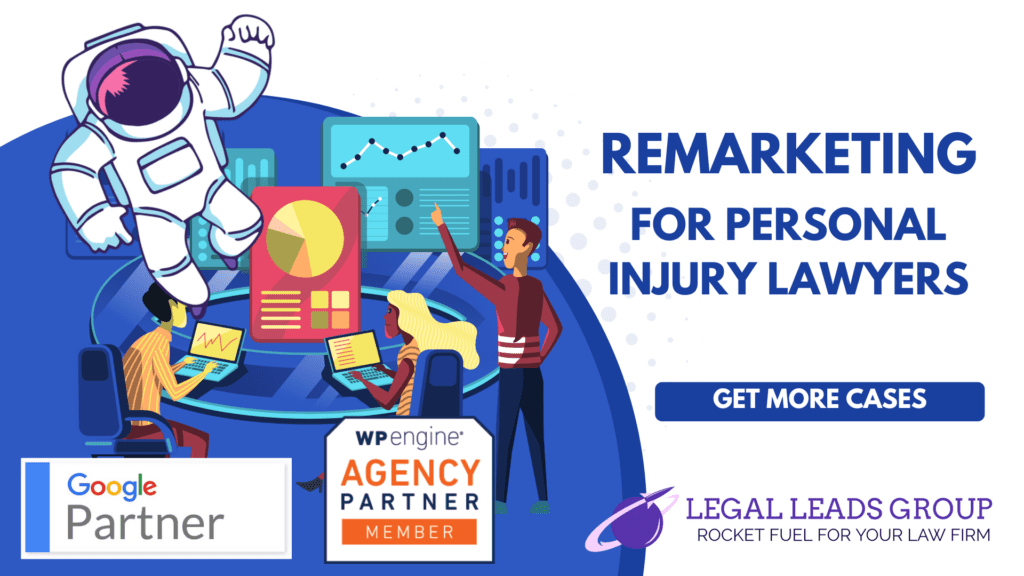
Contact Legal Leads Group Today for a Free Consultation to See How We Can Get More Case Leads
Setting up and managing remarketing campaigns isn’t as simple as flipping a switch. It requires careful audience segmentation, personalized ad creation, continuous optimization, and regular performance tracking. For law firms already managing client cases, juggling remarketing tasks can become overwhelming and time-consuming. That’s where we step in. At Legal Leads Group, we take the burden off your shoulders by designing, running, and refining remarketing campaigns tailored to your practice areas and needs.
We understand how critical it is to stay visible to potential clients who are weighing their legal options. Our ads team will create customized campaigns that target users at the right moments, helping you turn missed opportunities into consultations and, ultimately, new cases. From crafting compelling ads to adjusting bids and performance metrics, we handle it all while you focus on what you do best – representing your clients. Contact Legal Leads Group today for a free consultation, and let’s discuss how we can help your law firm secure more cases and grow your practice.